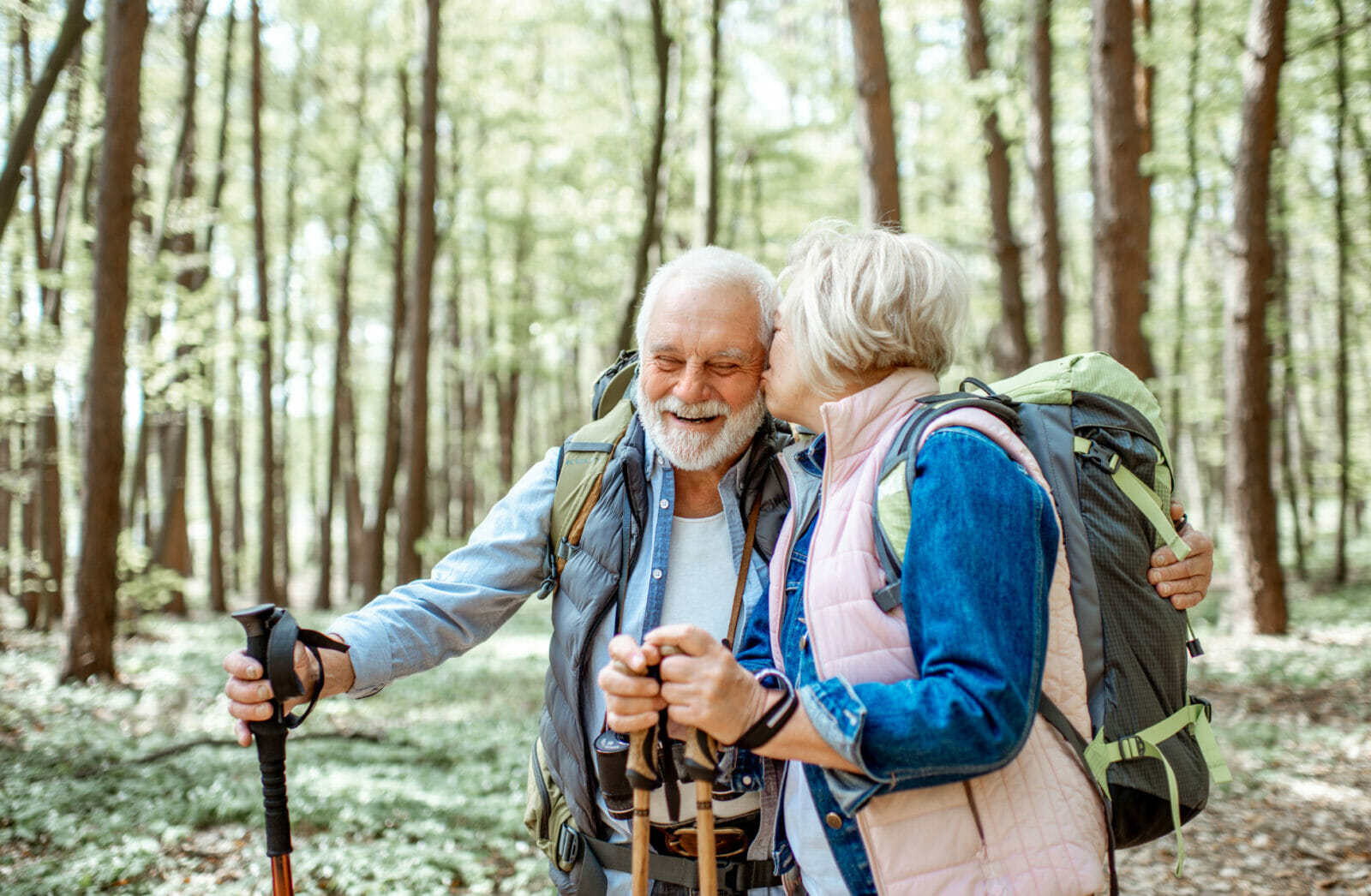Getting outside more often is one of the best parts of summer! However, all that extra sunshine could have a dangerous downside: sunburn. Sunburns are uncomfortable on the best of days, and can put you at a higher risk for skin cancer. Unprotected exposure to sun also causes age spots, wrinkles, and other signs of aging you might prefer to minimize. So, how do you keep your skin safe while still enjoying the great outdoors? Check out these summer skincare tips for seniors!
Wear UPF Clothing
UPF, or ultraviolet protection factor, is basically an SPF rating for fabrics. UPF shows how much ultraviolet radiation, including UVA and UVB rays, a fabric blocks. So a fabric that says “UPF 30” allows 1/30th of the sun’s rays to penetrate the fabric and reach your skin. The Skin Cancer Foundation says a fabric needs to have a UPF of at least 30 to be recommended. A UPF of 30-49 is considered “very good” protection, and anything above 50 is excellent.
Clothing that protects your skin from the sun generally needs to be dark colored, not too tight, and provide more coverage, like long sleeves and pants instead of short sleeves and shorts.
Essentially, a big black wool sweater would have a great UPF. But it would also be unbearably hot on a summer day!
Fortunately, new technological advancements in fabrics have created UPF clothing that won’t have you overheating in minutes. You can check out a list of some of the best UPF clothing here.
Use High-Quality Sunscreen
While the necessity of sunscreen isn’t exactly breaking news, the type of sunscreen you use may matter more than you realize. Did you know sunscreen expires? The FDA requires sunscreen to maintain its strength for at least 3 years, so you don’t have to throw away last year’s bottle. But if you don’t remember when you bought that dusty tube, it might be a good idea to replace it.
Types and quality of sunscreen vary widely. Here are some things to look for when purchasing new sunscreen:
- Broad spectrum. This means it protects against both UVA and UVB rays. SPF, or Sun Protection Factor, only shows protection against UVB rays. So if a sunscreen doesn’t say “broad spectrum,” it might not protect you against UVA rays. UVA rays cause age spots and wrinkles, and can also contribute to your risk of skin cancer.
- SPF of at least 30. Anything less than 30 probably won’t offer enough protection from today’s harsh sunlight.
- Water and sweat resistant. Chances are if you’re outdoors in the summer, you’re probably going to get at least a little bit wet and/or sweaty. Make sure your sunscreen isn’t going to just wash off! And remember, even if you use water resistant sunscreen, you’ll still need to reapply every 2 hours or so.
- A sunscreen you actually like. If your sunscreen smells bad, irritates your skin, or is otherwise inconvenient to use, you are much less likely to apply it when you need it. Experiment with different types of sunscreen, like mineral, spray, topical, hydrating, etc. to find the one you like the most. The best sunscreen is the one you’ll actually use!
Cover Up or Stay in the Shade
It may not be as fun in the shade, but it’s still better than malignant melanoma. Exposure to sunlight is the leading cause of melanoma, a serious form of skin cancer. The sun is especially powerful between 10am and 4pm, so if you’ll be outside for a while during those hours, try to stick to the shade. If shade isn’t available, or you just can’t stay away from the sunlight, wear a hat and sunglasses to give yourself a little more protection.
These summer skincare tips for seniors will help you prevent sunburns, skin cancer and premature aging of your skin. Stellar Living hopes you have a fun, safe summer!




